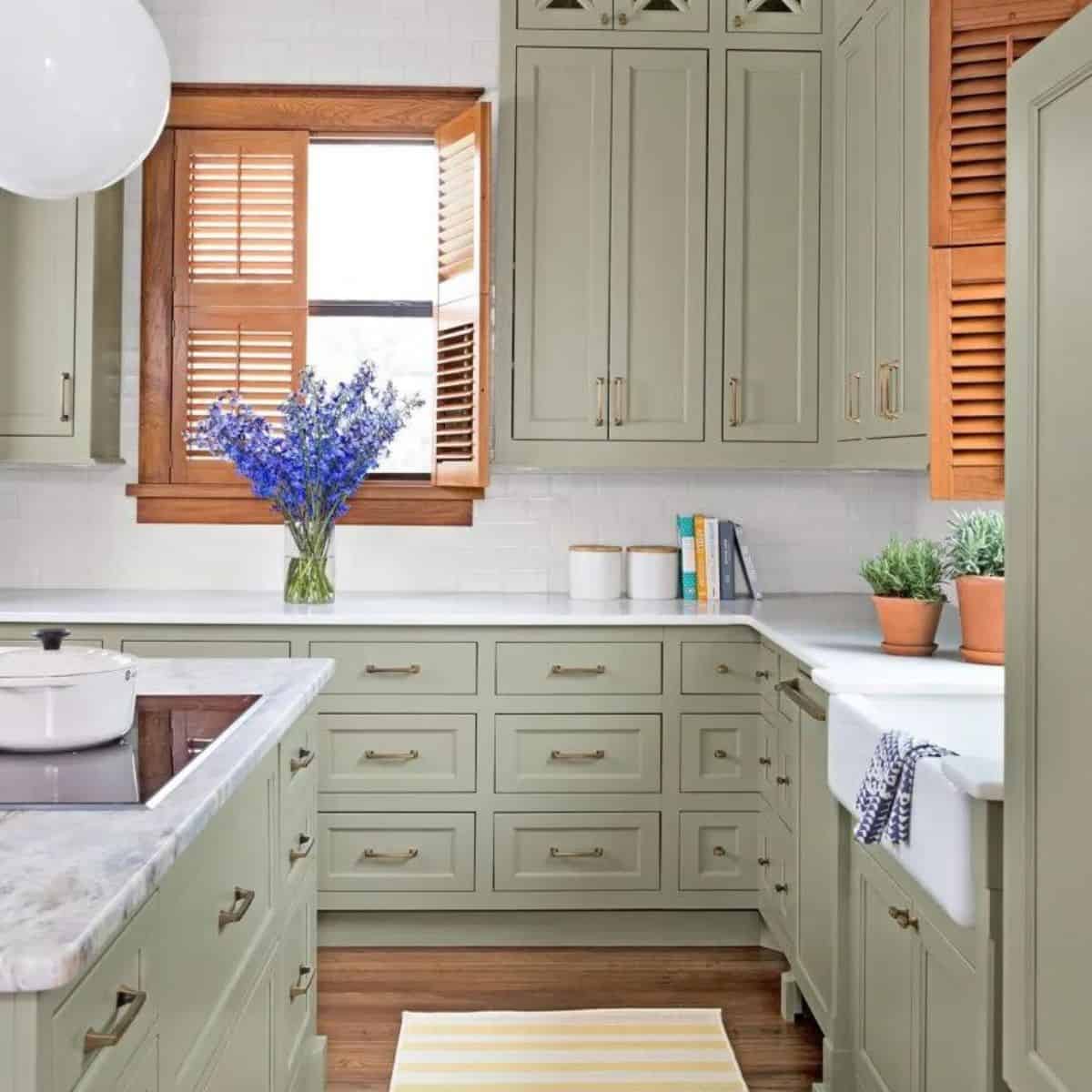Transform Your Bedroom with Soothing Sage Green Paint

Imagine stepping into a bedroom that embraces you with a sense of calm, a space where tranquility meets style. That's the magic of sage green. This muted, earthy hue has taken the interior design world by storm, and for good reason. It offers a versatile backdrop for creating a restful retreat, blending seamlessly with various decor styles.
Choosing the perfect sage green paint for your bedroom can feel overwhelming with the sheer number of options available. From soft, whispering tones to bolder, more saturated shades, the spectrum of sage green is surprisingly wide. This article serves as your guide to navigating the world of sage green, helping you discover the ideal shade to transform your bedroom into a personal haven.
The popularity of green paint colors, including sage, has ancient roots. Green has long been associated with nature, growth, and renewal. Historically, pigments for green paints were derived from natural sources like plants and minerals, making them precious and often reserved for significant spaces. Today's sage green paint colors echo this connection to nature, bringing a sense of the outdoors in.
The primary issue with selecting a sage green paint color lies in understanding how light affects the final look. North-facing rooms tend to receive cooler light, which can make some sage greens appear more gray or blue. South-facing rooms, bathed in warmer light, might make the same shade appear more yellow or vibrant. Testing paint samples on your walls in different lighting conditions is crucial for making the right choice.
Sage green, in essence, is a muted green with gray or brown undertones. This makes it more subdued than a pure green, offering a softer, more sophisticated feel. Think of it as the quieter cousin of vibrant emerald or kelly green. It pairs beautifully with natural materials like wood, linen, and rattan, enhancing the calming atmosphere.
One of the key benefits of sage green is its versatility. It works well in various design styles, from minimalist and modern to farmhouse and bohemian. For example, in a minimalist bedroom, a pale sage green can create a serene backdrop, while a deeper sage can add depth and character to a bohemian space.
Another advantage of sage green is its ability to promote relaxation and sleep. Green is known for its calming properties, and sage green, with its muted tones, amplifies this effect. Imagine waking up in a room painted in a tranquil sage green – the perfect start to a peaceful day.
Finally, sage green is incredibly easy to decorate with. It complements a wide range of accent colors, including white, cream, gray, brown, pink, and even deeper shades of green. This flexibility allows you to create a personalized space that reflects your individual style.
To successfully incorporate sage green into your bedroom, start by considering the room's lighting. Test paint samples on your walls and observe how they look throughout the day. Once you've chosen your perfect shade, select complementary furnishings and accessories that enhance the calming atmosphere.
Advantages and Disadvantages of Sage Green
| Advantages | Disadvantages |
|---|---|
| Calming and relaxing | Can appear dull in poorly lit rooms |
| Versatile and complements various styles | May not suit all personal preferences |
| Easy to coordinate with other colors | Requires careful consideration of undertones |
Frequently Asked Questions:
1. What colors go well with sage green? Neutrals like white, cream, gray, and brown are excellent choices.
2. Is sage green a cool or warm color? It can be both, depending on its undertones. Gray undertones make it cooler, while brown undertones make it warmer.
3. What is the best shade of sage green for a small bedroom? Lighter shades can make a small room feel larger.
4. Can I use sage green on the ceiling? Absolutely! It can create a cozy and enveloping feel.
5. What type of finish should I choose for sage green paint? A matte or eggshell finish is generally preferred for bedrooms.
6. Does sage green work with wood furniture? Yes, sage green complements wood tones beautifully.
7. How can I add pops of color to a sage green bedroom? Use accent pillows, throws, and artwork in complementary colors.
8. Where can I find inspiration for sage green bedrooms? Pinterest and interior design magazines are great resources.
One tip for using sage green is to incorporate different textures to add depth and interest. Think linen bedding, a chunky knit throw, and a woven rug.
In conclusion, the best sage green paint colors for bedrooms offer a pathway to creating a sanctuary of serenity and style. From its historical connection to nature to its modern versatility, sage green has proven its staying power in the world of interior design. By understanding the nuances of undertones and lighting, and by carefully selecting complementary decor, you can transform your bedroom into a calming oasis that reflects your personal taste. Embrace the tranquility of sage green and experience the transformative power of color in your own home. Start your journey to a more restful and stylish bedroom today by exploring the diverse world of sage green paint colors. Don't be afraid to experiment with different shades and accessories to create a space that truly feels like your own personal haven.
Unlocking potential whatcom community college application guide
Mastering the curve ball a pitchers guide
Exploring the tapestry of vitalia port st lucie













